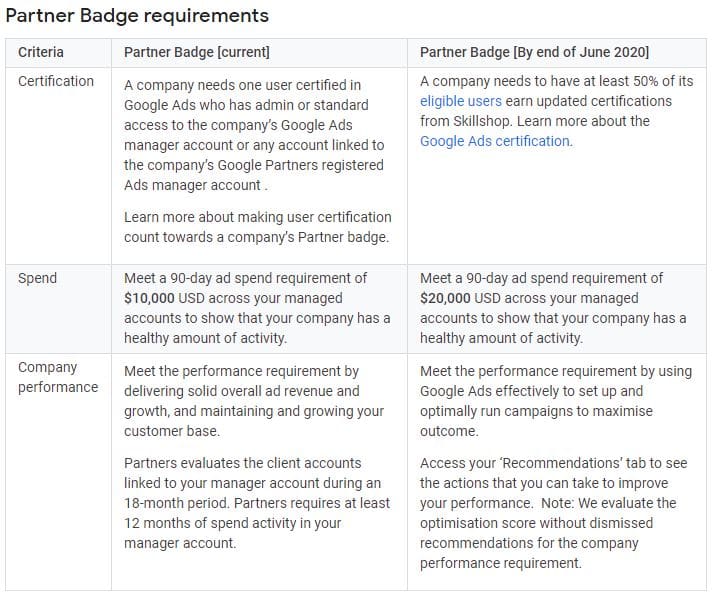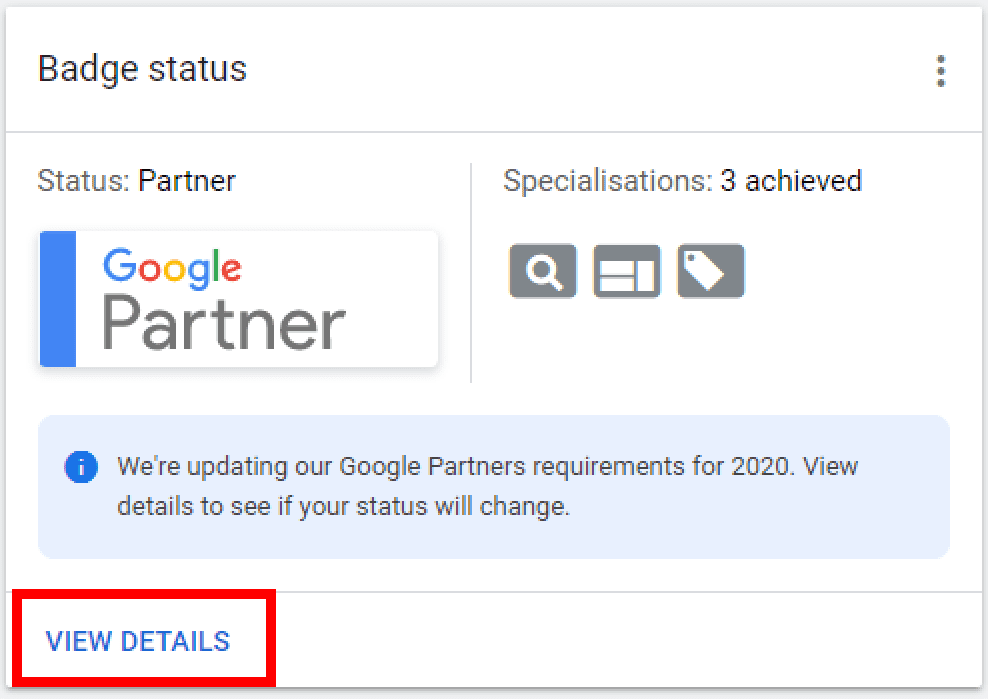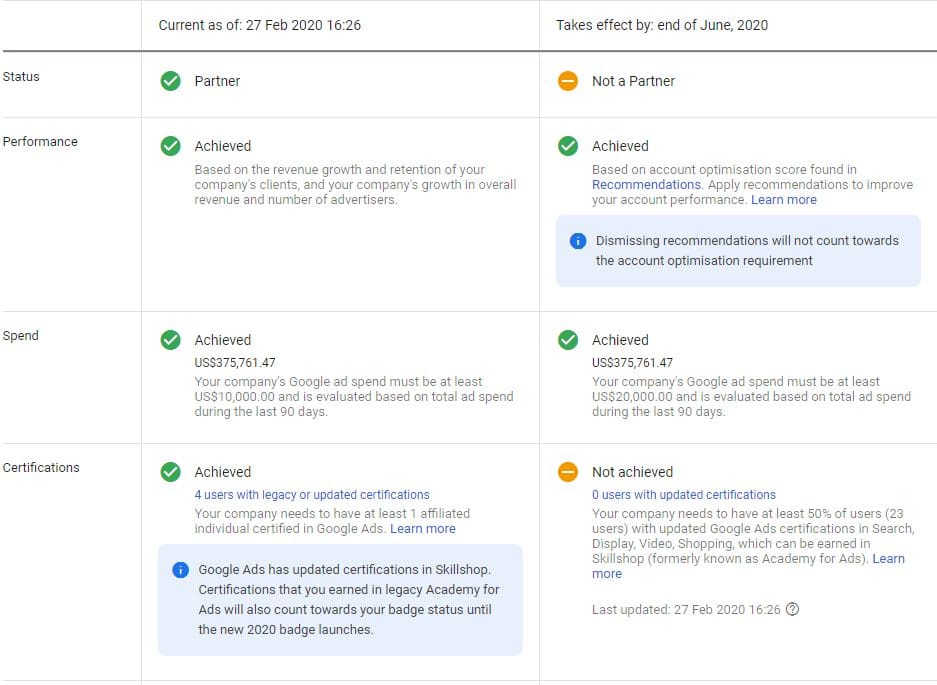“so yeah, we’re a Google Partner agency.”
Stop us if you’ve heard this before. Chances are it’s probably as high as the impression count of a standard Display campaign.
From June 2020 the criteria required to hold the distinction of being a Google Ads partner will be changing…
…and it’s scaring a lot of people.
Google’s recent email and updated Partners page outlined the changes to the programme.

Two of the three changes are pretty simple. The last one could be open to interpretation at this point.
More Employees Need to be Google Certified
Currently an agency only needs one person signed up to the program to be Google-certified.
From June at least 50% of all participating users will need to have passed their exams.
One thing that you’ll also need to consider here is any inactive accounts that may be connected to your account. People come and go in the agency world, so a prune to remove these inactive users before the change comes into effect.
Oh, and maybe consider re-taking your exam so you don’t forget down the road!
The Required Click Spend Threshold is Doubling
This could hit smaller agencies and consultants.
The 90-day minimum total spend for Google Partners will be increasing from $10,000 to $20,000.
Unless your clients are happy to increase their click spend, or you land a large number of new clients before this kicks in it’s hard to see how some agencies will be able to manage this.
If this affects you, our advice would be not to panic. Google Partner status should be just a small aspect of what makes you an attractive agency to work with. If you don’t already, try leaning more on your success stories and the things that make your approach effective.
The Recommendations Tab Has Never Been More Important
Right. This is where it gets a little complicated.
For a while Google has been recommending various ways to optimise an account. These range from adding suggested keywords, adding new ad formats, or shifting to their automated settings. Mostly the latter from our own experience.
Google says they’ll be evaluating each accounts optimisation score to determine Partner status. The problem is we don’t know what that score threshold is. It’s unlikely we’ll ever know.
A lot of people are panicking over this one. Google’s recommendations aren’t always what’s best for the account at the time and this has been seen as an attempt to force Google’s current advertising tactics on us. Frankly, some of the recommended changes we’ve seen could have devastating implications if just blindly followed.
Use our recommendations or risk losing your Partner status, basically.
From our understanding we don’t think this is the case. In their new criteria Google state “We evaluate the optimization score without dismissed recommendations for the company performance requirement.”
We take this as confirmation that it’s still okay to dismiss some of Google’s recommendations. We would urge you to seriously consider each recommendation, and if you decide to reject it, ensure you select the relevant reason to decline. This should help provide Google with enough of a reason to assume you’ve at least given them a thought.
Keep Google happy, basically!
If you are worried that these changes may wipe your credentials we’d suggest checking the badge status section in your MMC account. See below:


It’ll tell you if your current level of recommendation implementation is already enough to qualify for the new status.
Google Partners remains a great program to be part of, but it’s been quite apparent for a long time that Google sees the program as more of a sales development tool, something to use to get agencies to push their products more.
They tried the carrot with their giveaways. Now they’re using the stick with these changes.
But it’s not all doom and gloom. If you’re in the practice of regular optimisation to your clients’ accounts (which, let’s be honest, you should be) we don’t believe you’ll have reason to worry.








